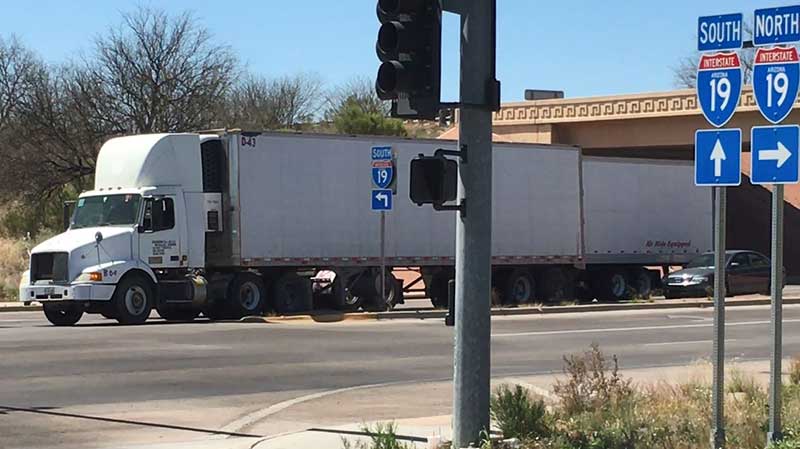Why SR 189 improvements, truck safety training in Mexico make a difference for all
Why SR 189 improvements, truck safety training in Mexico make a difference for all

Last week, the Arizona State Transportation Board approved $134 million in funding for building all of the planned improvements to State Route 189 in Nogales. SR 189 is a vital road for international commerce because it connects the Mariposa Port of Entry with Interstate 19 and is a 3.75-mile first step in distributing of products and produce across the U.S.
The same week, ADOT officers who perform commercial vehicle safety inspections went to Ensenada, Mexico, for their 14th safety cross-border training program. In the past 11 months, ADOT’s Enforcement and Compliance Division has trained 381 truck drivers and mechanics from Mexico about U.S. safety requirements. Those drivers have made a combined 4,746 trips across the international border and have been stopped only 11 times – one-quarter of 1 percent – for serious safety violations.
Together, those two efforts mean commercial trucks are spending less time crossing the border and will spend less time navigating the start of their journey. Here’s why that matters not only to commercial truckers but to everyone in Arizona and across the U.S.
Rafael Aldrete, director of the Center for International Intelligent Transportation Research at Texas A&M University, wrote recently in The Dallas Morning News that inefficiency at the border extends "like sound waves" across vast distances and in unanticipated ways.
“Those issues can influence the cost of a television sold in Amarillo. They can determine how quickly a computer can be assembled and made available for sale in Dallas. They can affect commutes on interstate highways nationwide. And they dictate when fresh produce can be delivered and how much it will cost," he wrote.
"Traffic delays at the border can even be the decision point for where companies – especially those dependent on just-in-time delivery, like automobile or high-end electronics manufacturing – choose to open facilities, affecting economic development and employment opportunities in that community and statewide."
ADOT is doing more to reduce border wait times for commercial vehicles. Sonoran drivers have used a smartphone application, WhatsApp, 112 times since last August to check safety protocols with inspectors before approaching the border. A safety training program on the Arizona side of the border has trained another 1,521 commercial truckers in half-day safety presentations in Nogales, Douglas and San Luis.
Ultimately shorter wait times for shippers translate, in many cases, to reduced prices for consumers, Aldrete wrote.
"America's economic success depends significantly on transportation, and transportation is heavily impacted by each U.S.-Mexico port of entry – critical links that create and sustain jobs and supply the affordable goods relied upon by businesses and families across the nation," he said.
